In a world racing toward automation, artificial intelligence, and space tech, it’s easy to think that only the wealthiest nations can lead Startups. But one of the boldest entrepreneurial revolutions in recent years? It began in Bangladesh with the Innovation Design and Entrepreneurship Academy (iDEA) , a government-backed initiative that doesn’t just fund ideas. It nurtures them. Believe in them. And most importantly, believes in the people behind them. Successful Startups they funded include Truck Lagbe, SKOOT, Cross Roads, My Fuel Pump, etc
1. Introduction to the IDEA Project
In response to these emerging needs, the Innovation Design and Entrepreneurship Academy (IDEA) was launched under the Bangladesh government’s ICT Division in 2016. The IDEA Project is a flagship national initiative aimed at nurturing a vibrant startup ecosystem in the country. With the mission to support early-stage entrepreneurs, provide funding opportunities, facilitate mentoring, and establish a pipeline for technological innovation, the project serves as a strategic intervention for economic transformation.
The IDEA Project is designed not only to incubate startups but also to institutionalize innovation across academia, private sector, and government agencies. By building tech parks, organizing startup competitions, funding research-driven ideas, and supporting female entrepreneurship, IDEA is contributing to an ecosystem that enables inclusive, sustainable development.
1.1. The Importance of Innovation in the Modern Economy
In the 21st century, innovation is the primary driver of economic growth, competitiveness, and resilience. As the global economy undergoes rapid technological transformation, the ability of a nation to foster innovation determines its capacity to adapt to disruptions, create high-value jobs, and maintain sustainable development. Traditional development models, centered around agriculture and manufacturing, are being reshaped by knowledge-based economies, where ideas, technology, and entrepreneurship are the new capital. Countries that fail to embrace innovation risk stagnation, brain drain, and increasing inequality.
1.2. The Global Rise of Startup Ecosystems
Over the past decade, startup ecosystems have rapidly expanded across the globe, transforming cities into innovation hubs. From Silicon Valley in the United States to Bengaluru in India, governments have increasingly invested in digital infrastructure, policy reforms, and startup incubators to catalyze homegrown innovation. According to Startup Genome’s Global Startup Ecosystem Report 2023, cities with startup ecosystems attract more foreign direct investment, create millions of jobs, and become epicenters for technological advancement.
1.3. Bangladesh’s Youth Potential
Bangladesh stands at a strategic crossroads with one of its most significant assets: a young, dynamic population. With more than 50% of its population under the age of 35, the country has the potential to reap a substantial demographic dividend. However, realizing this potential requires targeted efforts in education, skill development, and entrepreneurship.
Despite steady economic growth and progress in poverty reduction, the country faces challenges such as unemployment, underemployment, and over-dependence on a limited number of sectors like ready-made garments and remittances. To break this dependency and diversify its economy, Bangladesh needs to unlock the creative and entrepreneurial energies of its youth. This calls for comprehensive innovation policies, digital skills training, and startup-friendly ecosystems that reduce entry barriers and promote scalable solutions.
3. Origin and Development of the IDEA Project
The Innovation Design and Entrepreneurship Academy (IDEA) Project stands as one of the most significant institutional initiatives of the Government of Bangladesh aimed at fostering innovation and entrepreneurship. Its launch in 2016 under the ICT Division of the Ministry of Posts, Telecommunications and Information Technology was a strategic move in line with the broader national goals of transforming the country into a digitally empowered and knowledge-based economy. By establishing a robust startup ecosystem, the IDEA Project seeks to provide a platform for young innovators, reduce youth unemployment, and contribute directly to the national economic agenda.
3.1 Launch and Background
The IDEA Project was officially launched in 2016 as a flagship program under the ICT Division of Bangladesh. Its inception was driven by the realization that the youth of Bangladesh, comprising more than 30% of the population, possess immense potential to drive economic growth through innovation, digital skills, and entrepreneurship. The government envisioned IDEA as a platform to transform brilliant ideas into commercially viable startups, thereby creating jobs, increasing productivity, and positioning Bangladesh as a regional innovation hub.
The early years of the IDEA Project focused on foundational activities—developing operational strategies, identifying promising startups, setting up incubators, and engaging with national and international partners. The project’s office was established in the capital, Dhaka, but its scope was gradually expanded to include universities and regional innovation hubs across the country.
3.2 Strategic Alignment with National and Global Frameworks
The IDEA Project aligns with multiple strategic frameworks at both the national and international levels:
a. Digital Bangladesh Vision
Launched in 2009, Digital Bangladesh was the cornerstone policy initiative to integrate ICT into all aspects of governance, economy, and society. The IDEA Project builds directly on this vision by fostering tech-based entrepreneurship, digitizing services, and promoting IT-enabled employment opportunities.
b. Sustainable Development Goals (SDGs)
Specifically, the IDEA Project contributes to:
- SDG 8: Promote sustained, inclusive economic growth and productive employment.
- SDG 9: Build resilient infrastructure, promote inclusive industrialization, and foster innovation.
By supporting startups in sectors like healthtech, agritech, fintech, and renewable energy, the IDEA Project directly advances these SDGs through technological solutions, job creation, and inclusive development.
c. Vision 2041 and 8th Five-Year Plan
As Bangladesh aims to become a developed country by 2041, innovation and entrepreneurship have been identified as critical drivers of economic modernization. The 8th Five-Year Plan (2020–2025) outlines objectives to promote startups and digital transformation. The IDEA Project serves as a policy instrument in achieving these goals.
3.3 Project Goals
The core mission of the IDEA Project can be summarized under the following strategic goals:
- Building a Sustainable Innovation Ecosystem
Create an enabling environment for startups through incubators, mentorship, access to finance, and global exposure. - Promoting Startup Culture Nationwide
Inspire and educate youth, especially from universities and underserved regions, to develop entrepreneurial mindsets. - Reducing Unemployment and Underemployment
Provide alternative employment opportunities through self-employment and small enterprise creation. - Capacity Building and Skill Development
Organize bootcamps, accelerator programs, and workshops on business development, innovation design, and emerging technologies. - Startup Internationalization
Enable Bangladeshi startups to enter global markets through strategic partnerships, investor matchmaking, and tech exchange.
3.4 Early Partners and Funding Mechanisms
The successful operationalization of the IDEA Project required collaboration across multiple stakeholders and the mobilization of both public and private resources.
a. Government Budget and ICT Division Support
Initially, the project received funding from the national budget allocated to the ICT Division. The IDEA Project is a government-funded initiative under the Annual Development Program (ADP), with consistent budgetary provisions since 2016.
b. International Development Partners
The project attracted technical and financial assistance from development agencies such as the World Bank, UNDP, and ADB, particularly in designing incubation models, capacity-building workshops, and policy formulation.
c. Private Sector Engagement
Partnerships were established with private investors, venture capital firms, and tech companies like Microsoft, Google, and local telecom providers for mentorship and technology access. Local universities and incubators like Grameenphone Accelerator also became collaborators.
d. Startup Bangladesh Limited
In 2020, the government launched Startup Bangladesh Limited, a venture capital initiative under the ICT Division, to provide equity financing to IDEA-supported startups. It offers seed funding, technical guidance, and investment networking—adding a crucial financial arm to the project.
3.5 Institutional Framework and Implementation Model
The IDEA Project operates under a structured institutional framework with clear responsibilities and monitoring mechanisms.
a. Governance Structure
- Project Steering Committee: Headed by the Secretary of the ICT Division, it provides overall strategic guidance and policy decisions.
- Project Implementation Unit (PIU): Composed of project directors, technical experts, and administrative staff, this unit is responsible for day-to-day operations, program design, evaluation, and reporting.
- Technical Advisory Panel: Comprises innovation experts, academic leaders, and successful entrepreneurs who offer insights into startup selection and curriculum design.
b. Operational Model
- Startup Selection: Nationwide calls are announced through competitions like “Startup Challenge,” followed by pitching sessions and evaluation by a panel of judges.
- Incubation and Mentorship: Selected startups receive office space, internet, legal support, and mentorship from domain experts for 6–12 months.
- Capacity Building: Workshops on UI/UX design, digital marketing, financial literacy, legal structuring, and IP rights are conducted regularly.
- Monitoring and Evaluation: Startups are monitored through KPIs such as revenue, job creation, social impact, and scalability. Performance data informs future improvements.
c. Regional Outreach
To decentralize innovation, IDEA has partnered with university innovation hubs across Khulna, Rajshahi, Sylhet, and Chittagong. Regional bootcamps and hackathons are regularly conducted to identify rural talents and ideas.
4. Key Functions and Operational Framework of IDEA
The Innovation Design and Entrepreneurship Academy (IDEA) Project is structured around five core functions—incubation and mentoring, startup funding, infrastructure provision, capacity building, and venture capital facilitation through Startup Bangladesh Limited. Together, these elements form an integrated operational framework designed to nurture ideas from conception through scale-up, ensuring that Bangladeshi innovators have the support they need at every stage of their entrepreneurial journey.
4.1 Incubation and Mentoring Programs
At the heart of IDEA’s operations are its incubation and mentoring offerings, which transform raw ideas into viable ventures:
- Select-and-Incubate Process
IDEA issues regular calls for proposals through national “Startup Challenges” and sector-specific hackathons. Applications are evaluated on criteria such as innovation potential, market viability, and team capacity. Successful teams enter a 6–12 month incubation cycle. - Structured Mentorship
Each incubated startup is paired with industry mentors—seasoned entrepreneurs, technologists, and investors—who provide one-on-one guidance on product design, business model refinement, customer discovery, and go-to-market strategies. Bi-weekly mentor check-ins ensure accountability and rapid problem-solving. - Peer Learning and Networking
IDEA organizes “Founders’ Circles”, where incubatees present progress, share challenges, and exchange best practices. Quarterly Demo Days connect teams with corporate partners, potential customers, and media, increasing visibility and forging strategic partnerships. - Milestone-Driven Approach
Incubation is organized around clear milestones—prototype development, user testing, pilot deployments, and first revenue. Startups that meet milestones receive continued support; those that stall receive targeted interventions or exit the program with guidance on alternative pathways.
4.2 Startup Funding and Access to Capital
Securing early-stage financing can be a critical bottleneck for innovation. IDEA addresses this through multiple financing mechanisms:
- Seed Grants
IDEA allocates non-dilutive seed grants (BDT 500,000–1,000,000) to top-ranked incubatees, enabling them to build prototypes, conduct market research, and cover operational costs during early validation stages. - Convertible Note Facilities
To bridge the gap between seed and Series A, IDEA offers convertible note agreements that defer valuation and simplify fundraising from angel investors. This instrument encourages private investment by reducing legal complexity and aligning interests. - Investor Showcases
Twice yearly, IDEA organizes “Investor Connect” events, inviting local angel networks, venture capital firms, and impact investors to pitch sessions and one-on-one meeting tracks. Startups receive feedback on pitch decks and investment readiness. - Partnership with Financial Institutions
IDEA has MOUs with state-run banks and fintech platforms to provide low-interest credit lines and invoice financing. These partnerships extend capital to growth-stage startups that demonstrate revenue traction but lack traditional collateral.
4.3 Infrastructure: Innovation Labs, Co-Working Spaces, and Regional IDEA Centers
IDEA provides physical and digital infrastructure critical for idea development and team collaboration:
- Central Innovation Lab (Dhaka)
Housed in a refurbished heritage building, the central lab offers prototyping equipment—3D printers, electronics workbenches, and CNC machines—alongside high-performance computing clusters for AI and data analytics. Lab managers provide technical assistance and safety training. - Co-Working Spaces
Open-plan, high-speed-internet co-working zones foster serendipitous collaboration. Startups gain 24/7 access to meeting rooms, video conferencing suites, and event halls. Membership tiers—basic, growth, and premium—scale with a startup’s stage and resource needs. - Regional IDEA Centers
To decentralize innovation, IDEA has established centers at public universities in Chattogram, Khulna, Rajshahi, and Sylhet. Each center mirrors the Dhaka infrastructure on a smaller scale, offering mentoring, co-working desks, and local investor networks. Regional centers conduct roadshows to identify rural talents and leverage local ecosystems. - Virtual Collaboration Platform
During rapid growth and in response to COVID-19, IDEA launched a cloud-based collaboration portal integrating project management, document sharing, and mentorship scheduling. This platform ensures continuity of services for startups working remotely or in satellite locations.
4.4 Capacity Building and Technical Training
IDEA’s impact extends beyond individual startups to the broader entrepreneurial ecosystem through robust capacity building initiatives:
- Bootcamps and Workshops
Regular multi-day bootcamps cover Lean Startup methodologies, design thinking, financial modeling, and digital marketing. Expert facilitators deliver hands-on sessions with real-world case studies, toolkits, and group exercises. - Specialized Tracks
Recognizing sectoral needs, IDEA offers specialized tracks in agritech, fintech, healthtech, and creative industries. Each track includes domain-specific training, regulatory guidance, and connections to sectoral associations and grant programs. - Faculty Fellowships and University Integration
IDEA embeds Entrepreneur-in-Residence fellows at partner universities, delivering entrepreneurship modules, mentoring student teams, and integrating startup projects into academic credit. This deepens the pipeline from academia to IDEA’s incubators. - Online Learning Resources
A dedicated e-learning portal hosts video lectures, templates, and toolkits, accessible to any registered user. MOOCs on business fundamentals, coding bootcamps, and certification programs in data science democratize learning for wider audiences.
4.5 Startup Bangladesh Limited: Venture Capital under IDEA
To complement grant and debt-based funding, the government launched Startup Bangladesh Limited (SBL) in 2020 as IDEA’s investment arm:
- Equity Investments
SBL deploys BDT 200–500 million funds across multiple startups each year, taking minority equity stakes to catalyze co-investment by private VCs. Approved investments follow a rigorous due diligence process aligned with global best practices. - Fund of Funds Model
SBL manages a Fund of Funds, investing in thematic venture funds (e.g., clean energy, biotech) to indirectly support a broader set of startups and encourage fund managers to enter the Bangladeshi market. - Performance Oversight
A board-appointed investment committee monitors portfolio performance, conducts quarterly reviews on financial metrics and social impact KPIs, and provides founders with governance and scaling advice. - Exit and Reinvestment
SBL aims for exits via M&A or secondary share sales within 5–7 years, recycling capital into the next generation of startups. Reinvestment discipline ensures the fund remains perpetually available for new ventures.
IDEA’s operational framework—spanning incubation, funding, infrastructure, capacity building, and venture capital—creates a comprehensive scaffold for Bangladeshi innovation to flourish. By integrating these key functions within a unified institutional architecture, IDEA systematically addresses the barriers that entrepreneurs face and propels startups from ideation to scale. As the project continues to evolve and expand its reach, its holistic model offers a replicable blueprint for other emerging economies seeking to build vibrant, self-sustaining innovation ecosystems.
Read More: Empowering farmers with ‘Fosholer Chikitsha’: How Technology is Changing Bangladesh’s Economy
5. Strategic Pillars of IDEA: Innovation, Design & Entrepreneurship
The Innovation Design and Entrepreneurship Academy (IDEA) Project is structured around three foundational pillars: Innovation, Design, and Entrepreneurship. These pillars represent a holistic approach to empowering startups and fostering a sustainable entrepreneurial ecosystem in Bangladesh. Each pillar addresses a specific area crucial to the journey of a startup—from the birth of an idea to the successful launch and growth of a business.
5.1. Innovation: Driving Research, Prototyping, and Tech-Based Local Solutions
Innovation is the heartbeat of the IDEA Project. The goal is to enable youth and aspiring entrepreneurs to transform problems into opportunities through new ideas, research, and practical technologies.
- Promoting Research & Development (R&D):
IDEA encourages startups to identify local challenges and build evidence-based, user-centric solutions. Funding is provided for applied R&D projects in areas like agri-tech, health-tech, ed-tech, fintech, and renewable energy.
Example: A Khulna-based startup incubated by IDEA developed a low-cost soil testing device using sensor technology to help farmers determine fertilizer needs. With grant support, the team collaborated with agricultural research institutions to improve the device’s accuracy and usability. - Technology Solutions for Local Problems:
The IDEA Project prioritizes technology solutions that solve real issues faced by marginalized communities. Startups are encouraged to use tools like machine learning, IoT, and blockchain to enhance the accessibility and efficiency of services.
Example: During the COVID-19 pandemic, an IDEA-backed team launched a telemedicine platform for rural patients with chronic illnesses. The solution used a mobile app, AI-based triaging, and partnerships with local health workers to deliver affordable consultations. - Prototyping and Pilot Testing Support:
Through its innovation labs and funding mechanisms, IDEA offers hands-on support for prototype development. Teams receive access to 3D printers, electronic circuit boards, and coding labs, enabling them to quickly iterate and test their products in real-world environments.
5.2. Design: From Ideas to Impactful Products
Design is the bridge between innovation and entrepreneurship. IDEA helps startups to refine and visualize their concepts through structured design thinking methodologies and practical design mentorship.
- Design Thinking Framework:
All incubated startups undergo workshops on design thinking—a human-centered methodology that focuses on empathy, ideation, and rapid prototyping. This framework ensures that startups build products users actually need.
Example: A female-led startup building a smart cooking device in Sylhet refined their product by observing how rural women prepare food. Based on this feedback, the team changed the stove height, added a battery indicator, and improved ease-of-cleaning—leading to higher adoption. - UX/UI Mentorship and Visual Identity Support:
Good design is essential in building trust and usability, especially for tech-driven startups. IDEA connects startups with UX/UI designers who help them craft engaging digital experiences, intuitive app interfaces, and consistent branding.
Example: A fintech team working on digital savings for domestic workers redesigned their mobile app’s interface based on user testing with 50 housemaids. Changes like simplified buttons, Bengali text prompts, and audio instructions significantly increased user onboarding. - Product Development Toolkits:
Through workshops and online resources, IDEA provides startups with toolkits for design validation, user journey mapping, persona creation, and MVP testing. These tools help reduce development time and ensure market-fit products.
5.3. Entrepreneurship: Building Viable, Scalable Business Models
While innovation and design form the core of a product, entrepreneurship ensures that the product reaches the market and grows sustainably. IDEA nurtures entrepreneurial thinking, business acumen, and growth readiness among founders.
- Business Model Development:
Startups receive hands-on coaching in developing and testing their business models using the Lean Canvas and Business Model Canvas approaches. Mentors guide teams in identifying customer segments, value propositions, revenue streams, and cost structures.
Example: A social enterprise producing organic sanitary napkins for low-income women restructured their business model after IDEA mentoring. Instead of B2C retail, they adopted a B2B partnership model with garment factories and NGOs, improving margins and distribution. - Market Entry and Go-To-Market (GTM) Strategies:
IDEA mentors assist startups in building realistic GTM plans, including pricing, distribution channels, branding, and promotional strategies. Sector-specific advice is provided for industries like health, education, logistics, and agriculture.
Example: A startup developing cold-chain logistics for fish farmers in Barisal received help in launching through a franchise-based delivery network, enabling them to expand to 20 upazilas within 6 months of product launch. - Scaling Tools and Investment Readiness:
Once a startup proves traction, IDEA provides access to scaling toolkits—standard operating procedures (SOPs), hiring plans, legal structuring, and financial projections. Workshops on pitch deck creation, term sheet negotiation, and investor storytelling are provided to help startups raise funds confidently.
Example: A healthtech startup using AI to detect diabetic retinopathy scaled their service nationally after winning investment from Startup Bangladesh Limited. IDEA supported them with financial modeling, term sheet review, and legal setup for Series A funding.
The three strategic pillars of IDEA—Innovation, Design, and Entrepreneurship—offer a complete ecosystem for startups to not only survive but thrive. By nurturing new ideas, shaping them into usable solutions, and enabling sustainable growth, the IDEA Project is helping build a generation of job creators, not job seekers. These pillars are interlinked, continuously evolving, and responsive to the dynamic needs of Bangladesh’s entrepreneurial landscape.
6.Case Studies of Startup Successes Incubated by iDEA
The iDEA Project has supported a variety of startups across Bangladesh, helping them to innovate, scale, and address critical socio-economic challenges. Below are in-depth analyses of five selected startups incubated by iDEA, highlighting their business models, achievements, the role of iDEA, and key lessons from their development trajectories.
6.1. FinTech-Enabled AgriTech Startup — “iFarmer”
iFarmer is a digital platform that connects rural farmers with urban investors, enabling individuals to invest in farming activities. It also provides farm inputs, advisory support, and access to markets for selling agricultural produce.
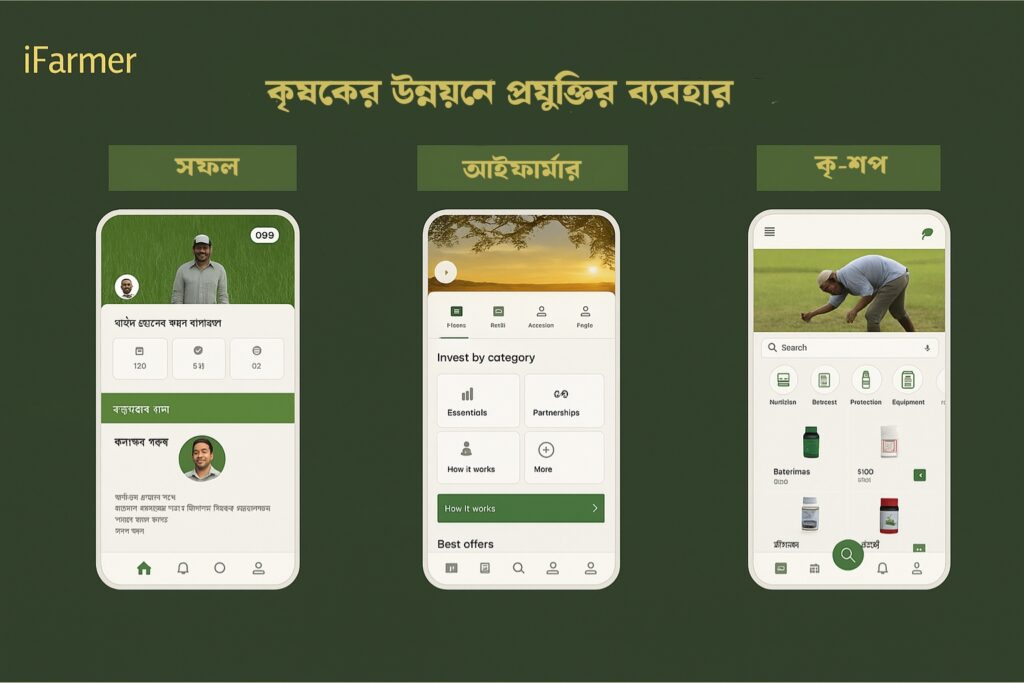
Achievements:
- Supported over 17,000 farmers across Bangladesh.
- Enabled over BDT 150 crore in financing and input distribution.
- Built a data-driven farmer profile and credit scoring system.
Role of iDEA:
- Received Pre-Seed Grant from iDEA that supported early operations and tech platform development.
- Used iDEA resources to conduct pilot testing in remote agricultural zones.
- Participated in mentorship and accelerator sessions to scale their investor-farmer matching system.
Lessons Learned:
- Scaling operations requires robust logistics and ground-level partnerships.
- Digital literacy challenges among farmers required simplified interfaces and on-ground support.
- Investor retention depended on transparent reporting and verified impact metrics.
6.2. Mental Health & Wellness Startup — “Moner Bondhu”
Moner Bondhu is a mental health and well-being platform offering online and offline counseling, workshops, and corporate wellness programs. It aims to make mental healthcare accessible, affordable, and stigma-free.

Achievements:
- Served 3 million+ people online and 100,000+ offline through outreach programs.
- Partnered with UNDP, ILO, and Brac for mental health initiatives.
- Provided mental health support during COVID-19 lockdowns.
Role of iDEA:
- Received funding under the iDEA Startup Bangladesh program.
- Used funds to scale digital therapy services and awareness campaigns.
- Gained access to legal and branding support through iDEA’s resource network.
Lessons Learned:
- Cultural stigma around mental health made outreach difficult initially.
- Localization of therapy content in Bengali was essential for user comfort.
- Collaborations with schools and workplaces were vital for community-level penetration.
6.3. EdTech Career Platform — “Interactive Cares”
Interactive Cares is an online education platform that connects students and job seekers with industry-aligned courses, career counseling, and skill-based training to improve employability.
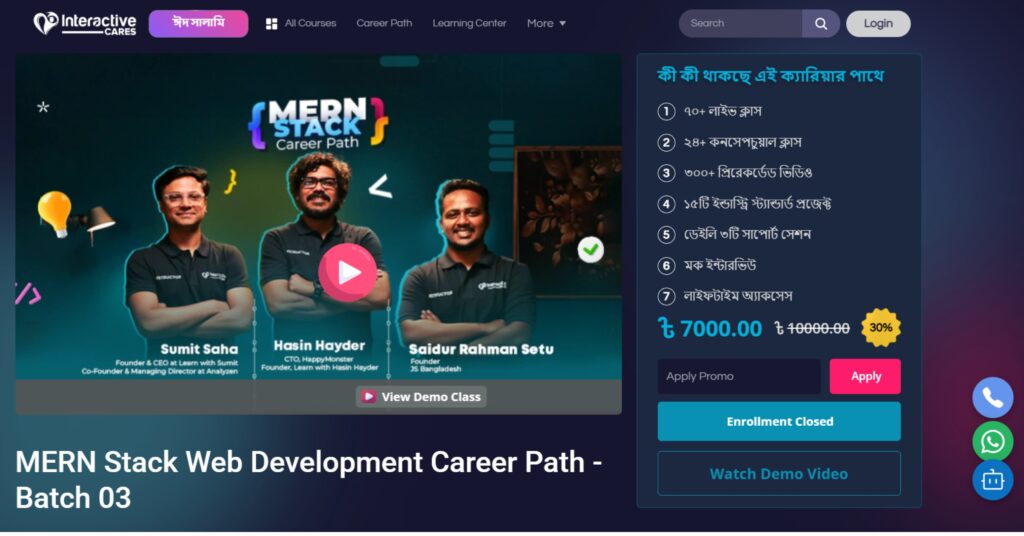
Achievements:
- Impacted over 300,000 learners in 3 years.
- Offered 70+ courses co-designed with experts from Google, Uber, and local industries.
- Secured a $100,000 investment from Accelerating Asia.
Role of iDEA:
- Provided initial funding to support product development and digital marketing.
- Helped the team network with mentors in the education and corporate sectors.
- Provided visibility and media coverage through iDEA showcases.
Lessons Learned:
- Success relies heavily on practical course content and industry alignment.
- Building trust required showcasing alumni success stories.
- The mobile-first strategy was key for reaching students across rural and urban regions.
6.4. EdTech Hardware Innovator — “Tinkers Technologies Ltd”
Tinkers Technologies develops interactive learning tools and toys for children, focused on science, engineering, and creativity. Their products support hands-on learning in schools and at home.
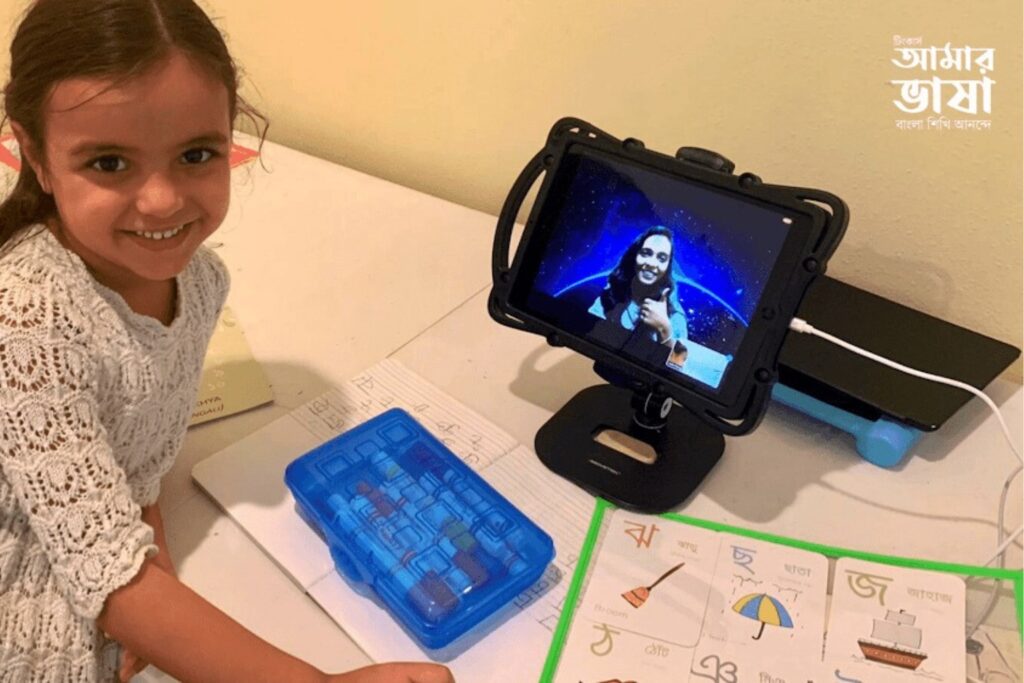
Achievements:
- Deployed educational kits to 150+ schools across Bangladesh.
- Developed a STEAM curriculum with aligned tools and online modules.
- Partnered with BRAC and Light of Hope for rural education support.
Role of iDEA:
- Received seed funding that enabled early prototyping and field testing.
- Used access to iDEA labs to refine educational product designs.
- Joined iDEA demo days which led to corporate partnerships.
Lessons Learned:
- Hardware startups face greater logistics and cost challenges.
- Co-creation with teachers and students improved user acceptance.
- Combining physical products with digital content enhanced learning outcomes.
6.5. Textile & B2B E-Commerce Startup — “Fabric Lagbe Ltd”
Fabric Lagbe is a digital marketplace for fabric, yarn, and garment accessories. It connects manufacturers, retailers, and tailors directly with verified fabric suppliers.

Achievements:
- Facilitated over 200,000 transactions across Bangladesh’s textile hubs.
- Created a digitized supplier verification system.
- Recognized by r-ventures 3.0 and secured investment from Robi Axiata.
Role of iDEA:
- Funded MVP development and initial marketing campaigns.
- Connected the startup with RMG sector stakeholders and government bodies.
- Offered digital compliance training to strengthen B2B processes.
Lessons Learned:
- Trust-building in B2B transactions is more critical than in B2C.
- Traditional businesses were slow to adopt the platform, requiring persistent outreach.
- Local language UX design significantly improved transaction success rates.
7. Ecosystem Building and Multi-Stakeholder Collaboration
A robust startup ecosystem requires the synergy of diverse stakeholders working together to nurture innovation, provide resources, and scale solutions. Recognizing this, the Innovation Design and Entrepreneurship Academy (IDEA) has adopted a comprehensive ecosystem-building approach grounded in multi-stakeholder collaboration. This approach leverages partnerships with academic institutions, the private sector, NGOs, government bodies, diaspora entrepreneurs, international investors, and cross-sector alliances to accelerate Bangladesh’s startup growth.
7.1. Partnerships with Universities, Private Sector, NGOs, and Donor Agencies
One of the foundational pillars of the IDEA Project’s ecosystem-building strategy is its close collaboration with universities and academic institutions. Universities are hubs of knowledge, research, and young talent—ideal for seeding innovation.
- University Partnerships:
IDEA partners with universities such as Bangladesh University of Engineering and Technology (BUET), North South University, and Ahsanullah University of Science and Technology to establish innovation labs, co-curricular entrepreneurship programs, and incubation hubs. These partnerships enable students to access mentorship, prototyping facilities, and entrepreneurial training.
Example: The IDEA Innovation Lab at BUET has become a launchpad for several successful startups, including an AI-based traffic management system that was piloted in Dhaka with city corporation collaboration. - Private Sector Collaboration:
To bridge the gap between innovation and market, IDEA collaborates with corporations like Grameenphone, bKash, and Robi to offer startups opportunities for pilot testing, distribution channels, and technology support. These companies also provide corporate mentorship and sponsor innovation challenges. - NGOs and Donor Agencies:
NGOs such as BRAC and international donor agencies like USAID, DFID, and the World Bank have been instrumental partners in funding IDEA’s capacity-building programs and scaling efforts. Their social development experience adds depth to entrepreneurial solutions in sectors like health, education, and agriculture.
Example: Supported by USAID, IDEA launched a Women’s Entrepreneurship Program in collaboration with local NGOs, providing training and seed funding to over 200 women-led startups across rural Bangladesh.
7.2. Engagement with Local Governments and Regional IDEA Centers
Decentralization of innovation and entrepreneurship support is crucial for inclusive growth. IDEA’s strategic engagement with local government bodies and establishment of regional centers ensure that startups outside Dhaka receive equal opportunities.
- Local Government Collaboration:
By working with city corporations, Upazila Parishads, and Union Councils, IDEA facilitates regulatory support, infrastructure provision, and awareness campaigns to promote entrepreneurship at the grassroots level. These partnerships also help startups navigate bureaucratic processes related to business registration and local licensing.
Example: In partnership with the Khulna City Corporation, IDEA helped set up a regional startup hub that offers co-working spaces, mentorship, and workshops tailored to the needs of the southern Bangladesh economy—especially in fisheries and agro-processing. - Regional IDEA Centers:
IDEA has established centers in key cities such as Chattogram, Sylhet, and Rajshahi to decentralize innovation resources. These centers act as local innovation ecosystems, reducing the urban-rural divide and unlocking regional talent and solutions.
Example: The Chattogram IDEA Center incubated a logistics startup that developed an app to connect small-scale fishermen with buyers directly, improving livelihoods while reducing wastage.
7.3. Role of Diaspora Entrepreneurs and International Investors
The Bangladeshi diaspora is a vital yet often underutilized resource in the country’s innovation ecosystem. IDEA strategically engages diaspora entrepreneurs and international investors to bring expertise, mentorship, and capital.
- Diaspora Engagement:
Many Bangladeshis abroad have deep experience in Silicon Valley, Europe, and other innovation hubs. IDEA organizes diaspora networking events, webinars, and pitch days where these experts can mentor local startups, help refine business strategies, and provide market access beyond Bangladesh.
Example: A startup developing AI-powered language translation software partnered with a Silicon Valley-based Bangladeshi entrepreneur via IDEA’s diaspora mentorship program. This collaboration helped them secure seed funding and access US markets. - International Investors:
IDEA collaborates with global venture capital firms and angel investors interested in emerging markets. The project facilitates investor-startup matchmaking events and showcases promising startups at international forums.
Example: IDEA helped an agritech startup connect with investors from the Middle East, resulting in a $500,000 Series A investment that accelerated product development and regional expansion.
7.4. Cross-Sector Collaboration: Healthcare, Agriculture, E-commerce, and Beyond
Innovation rarely happens in isolation. IDEA promotes cross-sector collaboration where startups from different sectors work together to create integrated solutions that address complex challenges.
- Healthcare and Technology:
IDEA encourages collaboration between health startups and ICT companies to develop telemedicine platforms, electronic health records, and AI diagnostics. This cross-pollination has improved healthcare access for remote and underserved populations.
Example: A collaboration between an IDEA-backed wearable device startup and a health app company resulted in a remote patient monitoring system now used by clinics in Rangpur and Sylhet. - Agriculture and E-commerce:
Startups working in agriculture often need market linkages, logistics, and financing solutions. IDEA fosters partnerships between agri-tech innovators, e-commerce platforms, and fintech startups to create end-to-end value chains.
Example: An organic vegetable cooperative supported by IDEA teamed up with an e-commerce platform and a mobile payment provider to enable direct farm-to-consumer sales, increasing farmer incomes by 30%. - Sustainability and Renewable Energy:
IDEA promotes sustainable entrepreneurship by encouraging partnerships between green tech startups and energy companies, NGOs, and government programs focused on climate resilience.
The strength of IDEA lies in its ability to orchestrate a diverse network of stakeholders—from universities and corporations to local governments, diaspora entrepreneurs, and international investors. This multi-stakeholder collaboration creates a nurturing environment where startups can access knowledge, resources, markets, and capital at different stages of their journey. By decentralizing innovation through regional centers and fostering cross-sector partnerships, IDEA is laying the foundation for a vibrant, inclusive, and resilient entrepreneurial ecosystem that can drive Bangladesh’s economic transformation in the years ahead.
Read More: Pickaboo and the Rise of E-Commerce in Bangladesh: A Digital Retail Revolution
8. Impact Assessment: Economic, Social, and Technological (2024–2025)
The Innovation Design and Entrepreneurship Academy (iDEA) Project, launched under the ICT Division of Bangladesh, has matured significantly in recent years. The period of 2024–2025 marks a phase of robust expansion and measurable impact in three key dimensions: economic development, social transformation, and technological advancement. The following assessment evaluates iDEA’s contributions using real-world examples, data-driven indicators, and sector-specific performance metrics.
8.1. Economic Impact
1. Job Creation
Through its support for early-stage startups and innovation hubs, iDEA has catalyzed employment opportunities across Bangladesh. As of early 2025, over 11,000 direct jobs and approximately 32,000 indirect jobs have been created by iDEA-supported startups.
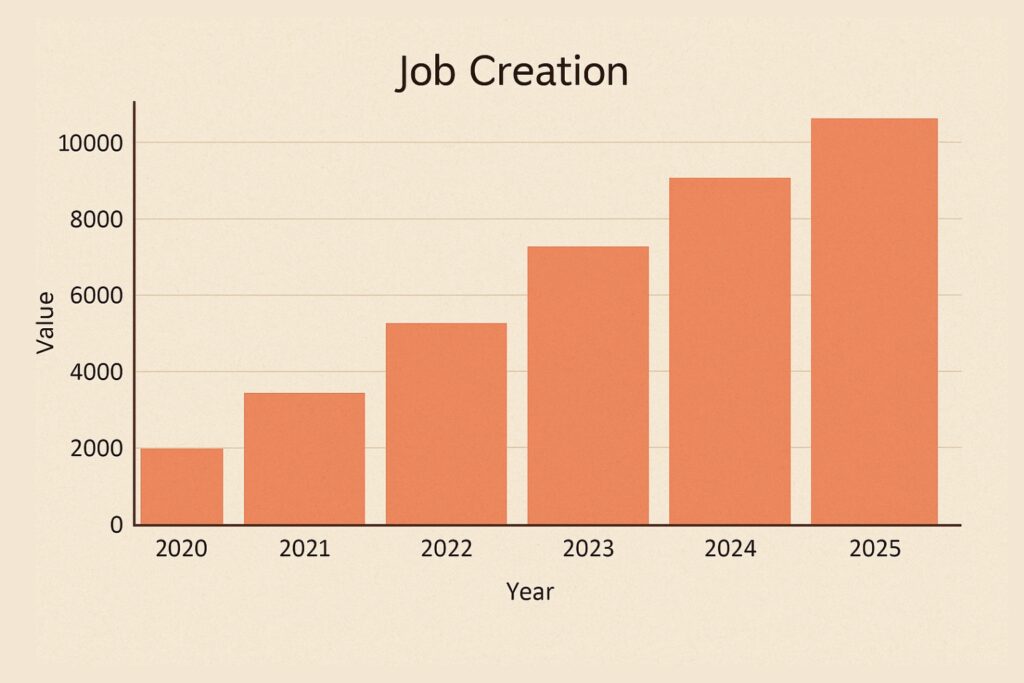
- Example: The startup SolarWay BD has employed over 400 individuals directly and indirectly in its renewable energy projects, particularly in off-grid rural regions.
- Metrics Used: Number of full-time employees (FTEs), contractual workers, and freelancers reported in quarterly impact surveys.
2. SME Development
The iDEA Project has significantly bolstered the SME ecosystem by incubating scalable ventures and simplifying access to business development resources. In 2024 alone, over 180 startups received mentorship and funding under the iDEA umbrella.
- Example: FinConnect, a fintech solution for mobile financial services (MFS) integration, now serves over 300 SMEs, enabling them to digitize payment systems and improve cash flow.
- Metrics Used: Growth in revenue, expansion in market coverage, and SME digitalization adoption rates.
3. Export Growth
Although still emerging, several iDEA-supported startups have begun entering international markets, especially in SaaS, healthtech, and EdTech sectors.
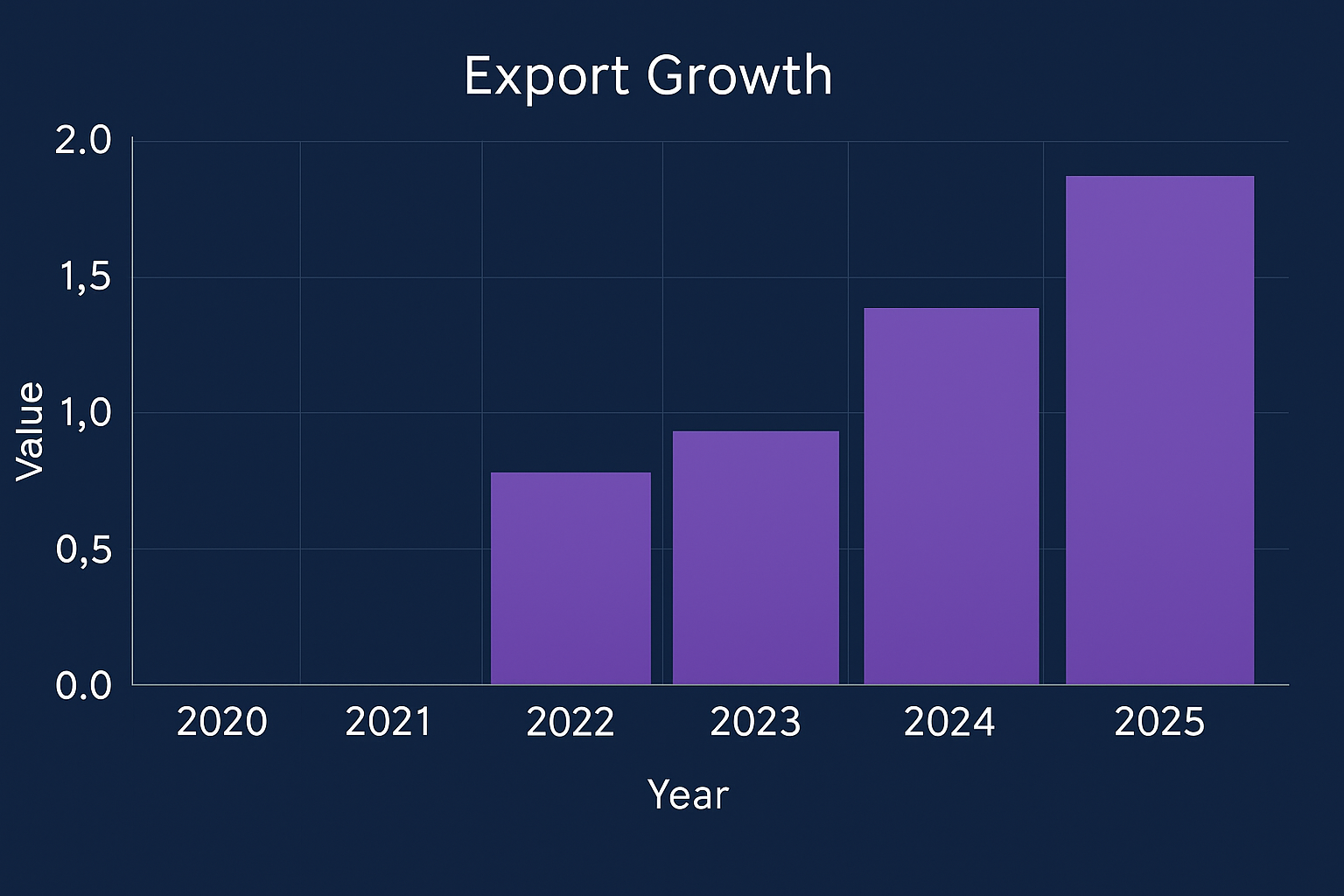
- Example: LearnBridge, an EdTech venture, began licensing its digital learning platform to schools in Nepal and Sri Lanka by late 2024.
- Metrics Used: Volume of cross-border transactions, foreign currency earnings, and international customer acquisition numbers.
8.2. Social Impact
1. Youth Engagement
The iDEA Project has proven instrumental in engaging Bangladesh’s youth in innovation, entrepreneurship, and digital skills. Through national startup competitions, boot camps, and mentorship, over 65,000 young individuals engaged in iDEA-driven programs during 2024–2025.
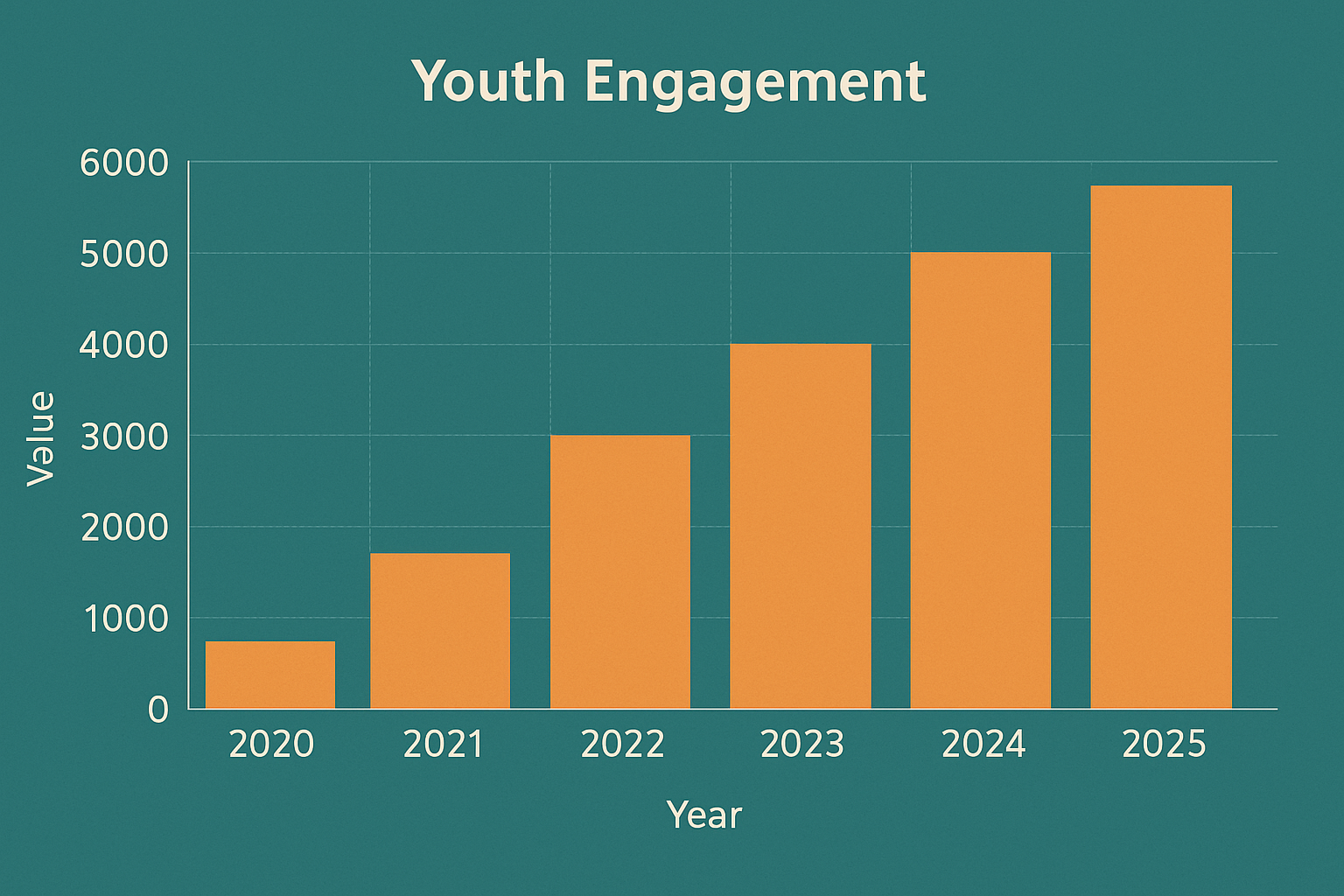
- Example: The Student to Startup initiative, re-launched in 2024, provided 150 university-based teams with training and funding, leading to the registration of 35 new startups.
- Metrics Used: Participation rates in youth programs, number of youth-led startups, and youth employment percentages in startup sectors.
2. Gender Inclusion
Gender equity has remained a priority for the iDEA Project. In 2024–2025, 31% of incubated startups had women in leadership roles, and dedicated support programs such as “SheMeansBusiness” were expanded.
- Example: MedWings, a healthtech startup founded by a female pharmacist, focused on menstrual health and teleconsultation for women, scaled to five districts by early 2025.
- Metrics Used: Female participation in funded projects, number of female founders/co-founders, and women beneficiaries reached.
3. Rural Empowerment
By extending innovation hubs and remote learning platforms beyond urban areas, iDEA has contributed to bridging the urban-rural divide. Rural-focused innovations like AgriTech and solar energy have directly improved livelihoods in underdeveloped regions.
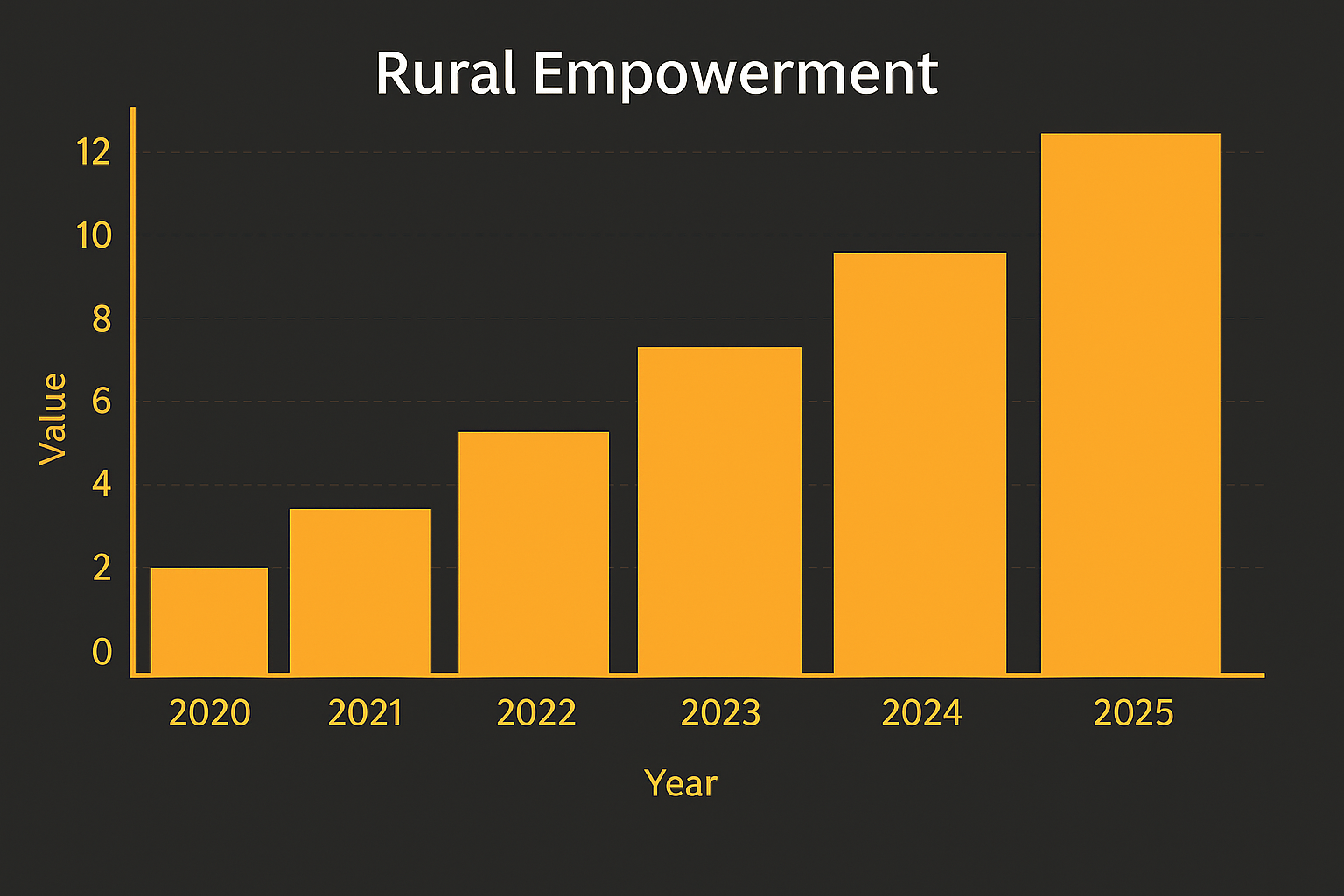
- Example: AgroLink BD expanded to 13 new rural districts in 2024, directly benefiting over 50,000 farmers with pricing information, crop advice, and market linkages.
- Metrics Used: Regional startup distribution, rural employment rates, agricultural income improvements.
8.3. Technological Impact
1. Adoption of AI, IoT, and Robotics
The iDEA Project has accelerated the use of advanced technologies like AI, IoT, and robotics in startups and academia.
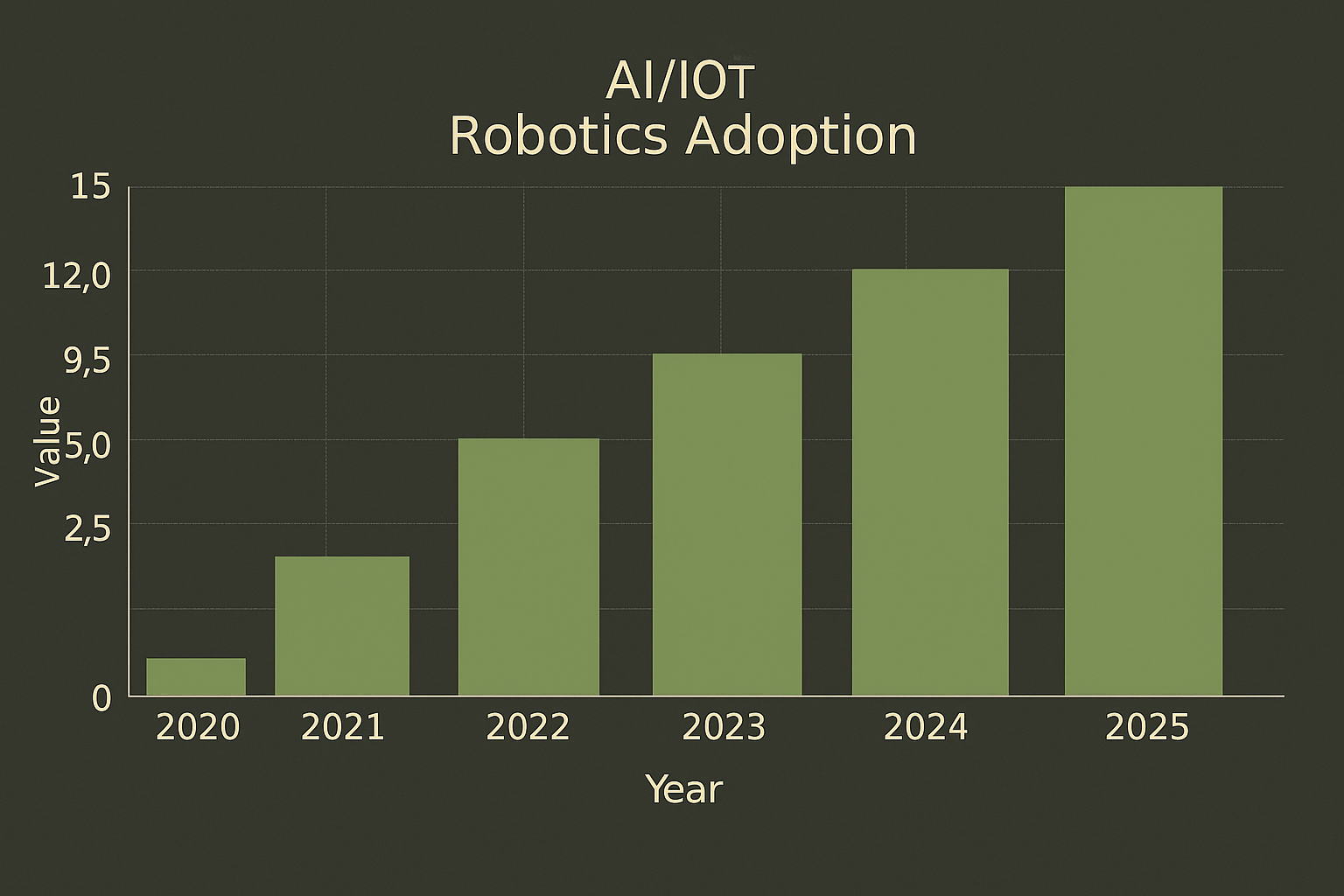
- Example: AgriBotics, a robotics-based farming solution using AI to monitor soil health and automate irrigation, received Pre-Seed funding in 2024 and successfully tested autonomous tractors in Rajshahi by early 2025.
- Metrics Used: Number of AI/IoT-enabled projects funded, patent filings, and technical prototype deployment rates.
2. Digital Services Expansion
Startups under iDEA have expanded Bangladesh’s digital service frontier—from EdTech and healthtech to logistics, fintech, and e-commerce.
- Example: Doc360, a digital healthcare platform, doubled its monthly consultations to over 40,000 in 2024, integrating AI for diagnostics and automated patient triage.
- Metrics Used: Monthly active users, app downloads, digital transaction volume, and digital literacy rates.
9. Policy Challenges and Proposed Solutions for IDEA Project
| Challenges | Description | Proposed Solutions |
| 1. Bureaucratic Hurdles and Slow Fund Disbursement | Delays in grant and fund release due to complex administrative processes. | Streamline procedures with a digital dashboard, set fixed timelines, and reduce red tape. |
| 2. Urban-Rural Digital Divide | Rural entrepreneurs lack internet access, digital literacy, and infrastructure. | Expand regional tech hubs, subsidize broadband, and offer local training in native languages. |
| 3. Investor Readiness Gap | Startups lack polished business models, documents, and pitching skills. | Introduce structured pre-investment readiness bootcamps and investor demo days. |
| 4. Low Startup Maturity and Post-Incubation Dropout | Many startups fail after initial support ends. | Provide post-incubation mentorship, alumni networks, and market linkage support. |
| 5. Lack of Sector-Specific Policies | No clear roadmap for health-tech, agri-tech, or edu-tech startups. | Create vertical-specific regulatory frameworks and fast-track approval for impact sectors. |
| 6. Funding Scalability Issues | Limited access to follow-on investments after seed stage. | Encourage local VC funds, create co-investment schemes, and incentivize private sector involvement. |
| 7. Gender Gaps in Startup Participation | Fewer women-led startups due to social and economic barriers. | Launch women-focused accelerator programs and offer child care and mobility support. |
10. Conclusion
The Innovation Design and Entrepreneurship Academy (IDEA) Project stands as a groundbreaking initiative in Bangladesh’s journey toward a knowledge-based economy. Since its inception in 2016, IDEA has played a transformative role in nurturing entrepreneurship, fostering innovation, and generating employment opportunities across the country. By providing incubation, mentorship, funding, and infrastructure to early-stage startups, it has laid the foundation for a dynamic startup ecosystem in alignment with the goals of Digital Bangladesh and the Sustainable Development Goals (SDGs), particularly SDG 8 (Decent Work and Economic Growth) and SDG 9 (Industry, Innovation, and Infrastructure).
Looking ahead, the IDEA Project has the potential to position Bangladesh as a leading startup hub in South Asia. With its large youth population, growing digital infrastructure, and increasing investor interest, Bangladesh is at a tipping point. By refining the IDEA model, addressing implementation gaps, and scaling innovation across sectors like agri-tech, health-tech, and fintech, the country can emerge as a center of inclusive and sustainable entrepreneurship.
References:



















